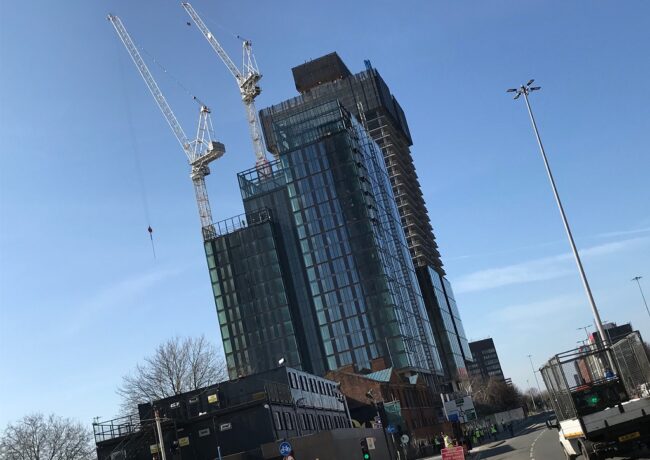£1.7bn of construction work paused
Construction work across the region worth £1.7bn has been impacted by the coronavirus as firms move to close sites to limit the spread.
A study from construction industry analysts Barbour ABI found that £25.5bn of construction work and contracts were currently on hold across the UK, £11bn of it in London.
This follows the decision by many but not all contractors to close sites in the interests of worker and community safety. According to Barbour ABI’s findings, almost half of the projects currently on hold in the North West are residential. In contrast the researcher did not report any delays to industrial developments in the region.
Selected schemes on hold as a result of the coronavirus pandemic include:
- Chapel Wharf in Salford, 995 flats
- Liverpool Road in Formby, 317 houses
- Dinton Street in Manchester, 280 apartments
- Greengate Embankment West in Salford, 503 flats
- School Lane in Maghull, 370 houses
While many developers and construction firms announced last week that they would be closing sites some stayed open, including those of Willmott Dixon and Balfour Beatty, who have warned employees to be prepared for police to stop them to ask where they are going during their commute. BAM construction, which closed sites last week so that it could assess its options, has reopened sites across the country today.
BAM said in a statement: “Our teams around the country have been reviewing and redesigning work at all sites. This has allowed discussions to be had with our clients, sub-contractors and those employees who are willing and able to work at sites, about re-opening.
“To support this, we have significantly reduced the number of people who will be present on our sites to help us work safely.”
James Wimpenny, BAM Construct UK chief executive, said: “Buildings are central to people’s lives, and at this time they are also central to saving people’s lives. These are the most extraordinary and concerning times for us all. We are all in this together, working hard to save lives and livelihoods.”





